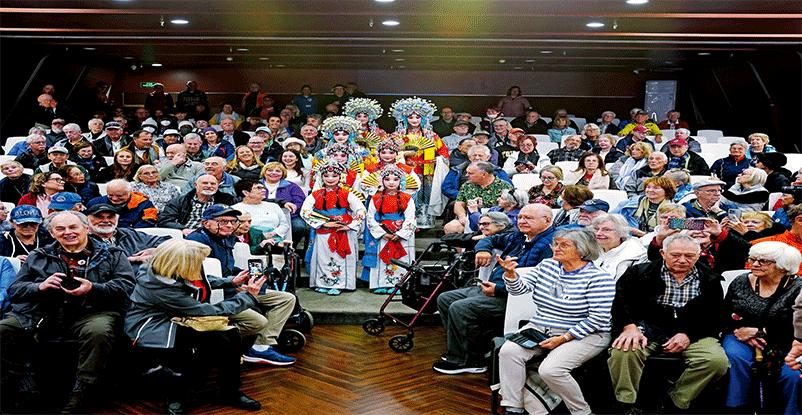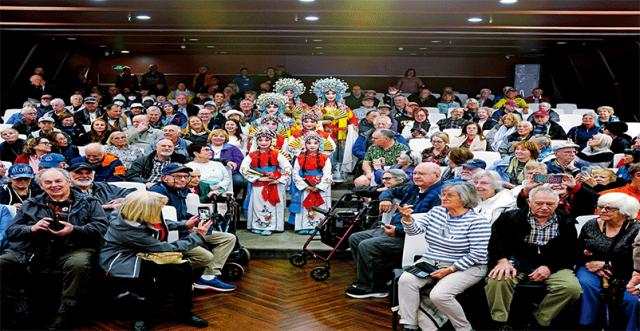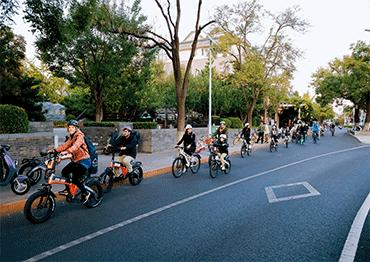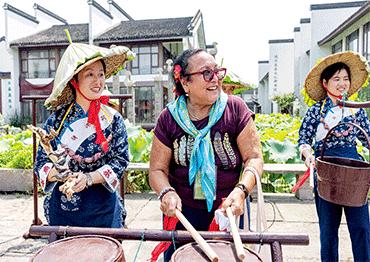“I didn’t need to do anything except go through passport control. I didn’t need to apply for anything, which was great. They only asked how long I would stay in China and reminded me not to overstay,” Muller told NewsChina.
She arrived at Shanghai Pudong International Airport on February 24. There she had a long layover for a connecting flight to Southwest China’s Chongqing to meet her traveling companion, Jieyi.
Communication was her biggest challenge at the Shanghai airport. “Not many people I met could speak English. I was trying to show them my ticket on my phone,” she said.
The rest of her journey went smoothly, with Jieyi helping her book tickets, reserve hotels and manage mobile payments.
Muller made the most of her visa-free period, traveling across the country and back in 15 days: She went from Chongqing to explore Yunnan Province, then on to Beijing and Yangzhou, Jiangsu Province before returning to Shanghai.
In Chongqing, she marveled at the famous Liziba Station, where a light rail train runs through a residential building. She was also impressed by the skyline from the rooftop of the Marriott Hotel.
In Beijing, she and her friend watched the solemn flag-raising ceremony at Tiananmen Square early one cold morning in March. “I thought I might have been the only foreigner there,” she joked.
One of the most surprising aspects of her trip was the diversity of Chinese food, especially as a vegetarian. “I didn’t think there would be so many different dishes to choose from. I wanted to try all of them,” she said.
Her favorite was kaoshaopi. A popular street snack in Chongqing, kaoshaopi involves a sweet potato flour wrap stuffed with cilantro, green onions, pickled cowpea and fish mint. She also enjoyed flower cakes, a traditional dessert from Yunnan made with edible rose petals.
Muller was impressed by China’s technology, particularly the speed and punctuality of the high-speed railway, the efficiency of express delivery and the use of delivery robots for hotel room service. “You ordered anything, and it was so convenient and fast. I was surprised. I even took a selfie with a delivery robot,” she said.
In Yangzhou’s He Garden, built in 1883, Muller marveled at its unique rockery. The arranged stones are based on a design originally created by the artist Shi Tao (1642-1707), a Buddhist monk who later turned to Taoism and settled in Yangzhou. When sunlight shines through a round hole in the stones, it projects a moon-like shape on the pond’s surface. The spectacle symbolizes life’s rise and fall through the moon’s phases.
“Meanings, metaphors, puns and symbols. There are always stories behind everything. That is very different from Europeans,” Muller told NewsChina.

 Old Version
Old Version




